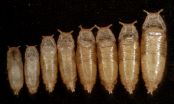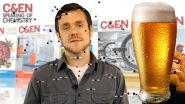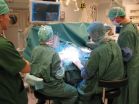INFORMATION:
Additional researchers on this project are Proma Paul, M.H.S., and John Grefenstette, Ph.D., both of Pitt Public Health; Claudia Emerson, Ph.D., of the University of Toronto; Richard Wilder, J.D., of the Bill & Melinda Gates Foundation; Abraham J. Herbst, M.B.Ch.B., M.Sc., F.F.C.H.(S.A.), of both the INDEPTH Network in Ghana and the University of KwaZulu-Natal in South Africa; and David Heymann, M.D., of the Chatham House London.
This research was funded by the Bill & Melinda Gates Foundation Vaccine Modeling Initiative grant no. 49276 and the NIH's National Institute of General Medical Sciences grant no. 5U54GM088491.
About the University of Pittsburgh Graduate School of Public Health
The University of Pittsburgh Graduate School of Public Health, founded in 1948 and now one of the top-ranked schools of public health in the United States, conducts research on public health and medical care that improves the lives of millions of people around the world. Pitt Public Health is a leader in devising new methods to prevent and treat cardiovascular diseases, HIV/AIDS, cancer and other important public health problems. For more information about Pitt Public Health, visit the school's Web site at http://www.publichealth.pitt.edu.
http://www.upmc.com/media
Contact: Allison Hydzik
Phone: 412-647-9975
E-mail: HydzikAM@upmc.edu
Contact: Wendy Zellner
Phone: 412-586-9771
E-mail: ZellnerWL@upmc.edu END
International team reveals barriers to public health data-sharing; life-saving solutions
2014-11-25
(Press-News.org) PITTSBURGH, Nov. 24, 2014 -Barriers to the sharing of public health data hamper decision-making efforts on local, national and global levels, and stymie attempts to contain emerging global health threats, an international team led by the University of Pittsburgh Graduate School of Public Health announced today.
The analysis, published in the journal BMC Public Health and funded by the Bill & Melinda Gates Foundation and the National Institutes of Health (NIH), classifies and examines the barriers in order to open a focused international dialogue on solutions.
"Data on disease surveillance, intervention coverage, vital statistics and mortality represent some of the most widely collected but also some of the most underused data," said lead author Willem G. van Panhuis, M.D., Ph.D., assistant professor of epidemiology at Pitt Public Health. "Innovative methods for collection of new data are developed all the time, but a framework to share all these data for the global good is seriously lacking. Investments in routine data systems will better position health officials to address ongoing challenges as well as new public health threats, such as the current Ebola epidemic in West Africa."
Dr. van Panhuis and his team - which included experts in ethics and law, as well as public health and epidemiology - identified more than 1,400 scientific publications related to public health data-sharing, ultimately winnowing them down to the 65 most relevant articles. From those, they determined 20 real or perceived barriers to data-sharing in public health and classified them into six categories: technical, motivational, economic, political, legal and ethical.
"These barriers and categories describe a landscape of challenges that must be addressed comprehensively, not piecemeal," said senior author Donald S. Burke, M.D., Pitt Public Health dean and UPMC-Jonas Salk Chair of Global Health. "We must work together as a global community to develop solutions and reap the benefits of data-sharing, which include saving lives through more efficient and effective public health programs."
The team found that most technical, motivational and economic barriers are deeply embedded in much larger challenges of health information system capacity, particularly in low- and middle-income countries. Solutions lie in sufficiently funding such systems through international cooperation and shared development of data and infrastructure used across agencies and institutes.
The political, legal and ethical barriers will require a dialogue across international agencies that should include the World Health Organization, World Intellectual Property Organization and World Trade Organization, as well as the countries, development and funding agencies, and experts in ethics and law. The team proposes the creation of a treaty for data-sharing in public health across the world, as well as a commission to monitor, mediate and facilitate data-sharing.
"Identifying and classifying these barriers was the first step toward harnessing the potential of data for a new era in population health," said Dr. van Panhuis. "As our knowledge of these barriers increases, so will the opportunities for solutions."
ELSE PRESS RELEASES FROM THIS DATE:
Body size requires hormones under control
2014-11-25
The proper regulation of body size is of fundamental importance, but the mechanisms that stop growth are still unclear. In a study now published in the scientific journal eLife*, a research group from Instituto Gulbenkian de Ciência (IGC), led by Christen Mirth, shed new light on how animals regulate body size. The researchers uncovered important clues about the molecular mechanisms triggered by environmental conditions that ultimately affect final body size. They show that the timing of synthesis of a steroid hormone called ecdysone is sensitive to nutrition in the ...
Feeling -- not being -- wealthy drives opposition to wealth redistribution
2014-11-25
People's views on income inequality and wealth distribution may have little to do with how much money they have in the bank and a lot to do with how wealthy they feel in comparison to their friends and neighbors, according to new findings published in Psychological Science, a journal of the Association for Psychological Science.
"Our research shows that subjective feelings of wealth or poverty motivate people's attitudes toward redistribution, quite independently of objective self-interest," says psychological scientist and study co-author Keith Payne of the University ...
Why fruit flies could lead to better beer (video)
2014-11-25
WASHINGTON, Nov. 25, 2014 -- Your beer may attract annoying fruit flies, but listen up before you give them a swat. Researchers found the yeast cells in beer are producing odor compounds -- acetate esters -- that lure flies and that could lead to the best beer you haven't even tasted yet. This week's Speaking of Chemistry explains why. Check it out at http://youtu.be/HQNlGuZvCvA.
Speaking of Chemistry is a production of Chemical & Engineering News, a weekly magazine of the American Chemical Society. The program features fascinating, weird and otherwise interesting chemistry ...
Virtual money: User's identity can be revealed much easier than thought
2014-11-25
Bitcoin is the new money: minted and exchanged on the Internet. Faster and cheaper than a bank, the service is attracting attention from all over the world. But a big question remains: are the transactions really anonymous? Several research groups worldwide have shown that it is possible to find out which transactions belong together, even if the client uses different pseudonyms. However it was not clear if it is also possible to reveal the IP address behind each transaction. This has changed: researchers at the University of Luxembourg have now demonstrated how this is ...
Few operations for epilepsy despite their safety and efficacy
2014-11-25
The study at Sahlgrenska Academy, University of Gothenburg, was based on the Swedish National Epilepsy Surgery Register, which includes all cases since 1990. The researchers reviewed data for the 865 patients who were operated on at Sweden's six epilepsy surgery clinics from 1996 to 2010.
The purpose of surgery is to enable a person with severe epilepsy to be free of seizures or to reduce their frequency to the point that (s)he can enjoy better quality of life.
Downward trend
Only 3% (25) of the patients suffered lasting complications. A comparison with a previous ...
Researchers find way to turn sawdust into gasoline
2014-11-25
Researchers at KU Leuven's Centre for Surface Chemistry and Catalysis have successfully converted sawdust into building blocks for gasoline. Using a new chemical process, they were able to convert the cellulose in sawdust into hydrocarbon chains. These hydrocarbons can be used as an additive in gasoline, or as a component in plastics. The researchers reported their findings in the journal Energy & Environmental Science.
Cellulose is the main substance in plant matter and is present in all non-edible plant parts of wood, straw, grass, cotton and old paper. "At the molecular ...
'Dramatic' early phase 1 results for AG-120 in IDH1 mutated AML
2014-11-25
Results presented November 19 by University of Colorado Cancer Center investigator Daniel Pollyea, MD, MS, at the 26th European Organisation for Research and Treatment of Cancer Symposium in Barcelona show "extremely promising" early phase 1 clinical trial results for the investigational drug AG-120 against the subset of patients with acute myeloid leukemia (AML) harboring mutations in the gene IDH1. The finding builds on phase 1 results of a related drug, AG-221, against IDH2 mutations, presented at the most recent meeting of the American Association for Cancer Research. ...
Johns Hopkins scientists link gene to tamoxifen-resistant breast cancers
2014-11-25
After mining the genetic records of thousands of breast cancer patients, researchers from the Johns Hopkins Kimmel Cancer Center have identified a gene whose presence may explain why some breast cancers are resistant to tamoxifen, a widely used hormone treatment generally used after surgery, radiation and other chemotherapy.
The gene, called MACROD2, might also be useful in screening for some aggressive forms of breast cancers, and, someday, offering a new target for therapy, says Ben Ho Park, M.D., Ph.D., an associate professor of oncology in the Kimmel Cancer Center's ...
Policing Canada in the 21st century: New policing for new challenges
2014-11-25
A new expert panel report, Policing Canada in the 21st Century: New Policing for New Challenges, released today by the Council of Canadian Academies, details the complexity and global nature of policing in the modern age. Overall, a 12-member Expert Panel determined that safety and security cannot just rest with Canada's policing services. Specialists, public and private security services, and other first responders all have a vital role to play in an interconnected safety and security web. This transition has already begun in Canada and around the world. A central challenge ...
Problem gambling, personality disorders often go hand in hand
2014-11-25
The treatment of people who cannot keep their gambling habits in check is often complicated because they also tend to suffer from personality disorders. So says Meredith Brown of Monash University in Australia, in a review in Springer's Journal of Gambling Studies.
Problem gambling creates a multitude of intrapersonal, interpersonal and social difficulties for the roughly 2.3 percent of the population internationally that suffers from this behavior. Previous research has shown that people with gambling problems suffer from a range of psychiatric disorders affecting their ...



